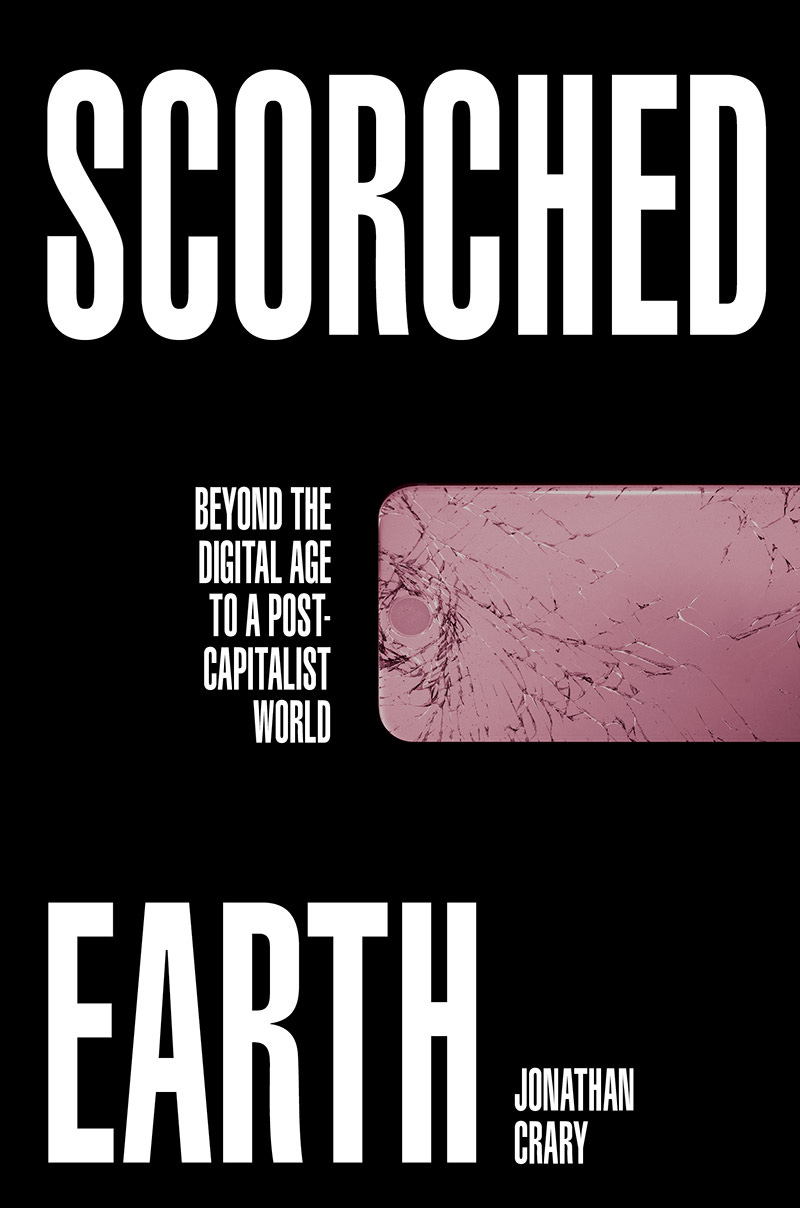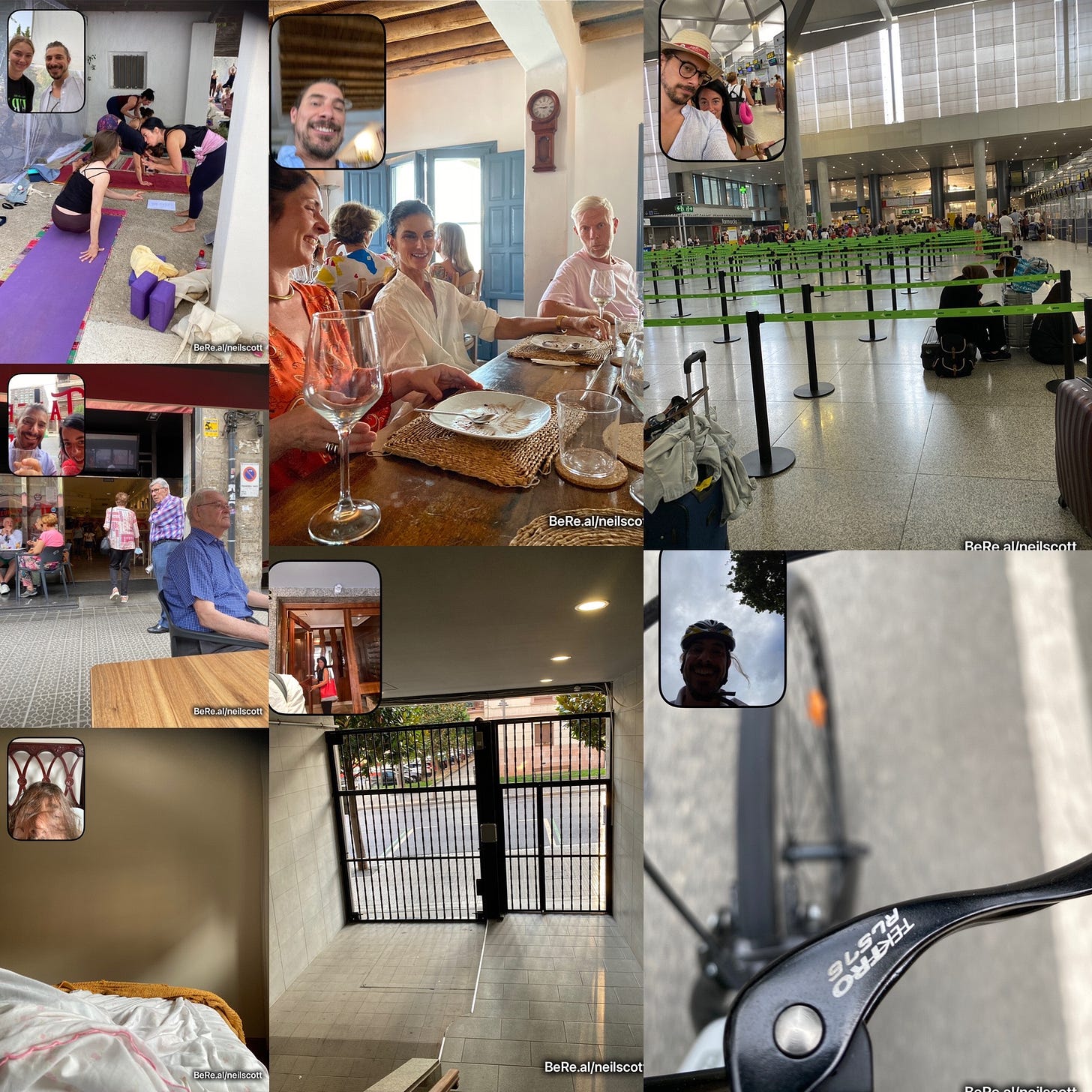The phenomenology of social media
BeReal, WhatsApp, and Locket in the mind's eye

Aphantasia is a condition where people lack a mind's eye. Ask an aphantasiac to close their eyes and picture an apple and all they see is the infinite darkness of innerspace. By contrast, those with a powerful mind's eye might see a juicy green apple that they can rotate in three dimensions.
We’re all on a visualisation spectrum, but the fact that some people see nothing at all is shocking, especially as most aphantasiacs are unaware that the condition exists. They think they're normal and that others are exagerrating.
And it's not just the mind's eye.
There are anosmiacs who don't know that smell is more than a metaphor and colour-blind people who are bemused at how much we talk about different shades of brown. There are even some poor (or lucky?) souls who go through life without an inner monologue. The human mind is so good at rationalising that we can go years without discovering such absences.
At a time when half the population seem to be neurodivergent or undergoing a crisis of identity, I am fascinated by these phenomenological insights. Topics like aphantasia are a good way of starting a conversation about how people experience consciousness and what we're missing out on without realising.
I was reminded of this idea after reading Zvi Moskhovitz's article on how to best use Twitter.
It had never occurred to me that you could use social media in an intentional way. I always assumed that we just had to endure whatever Silicon Valley gives us.1 The idea that you might enjoy using an app or find it useful was perplexing. I assumed the gripes I had with social media were the cost of doing business in the modern world; what you have to do in order to stay in touch with friends.
Long-distance, instant communication of any kind is barely one hundred years old. The signs aren't great that we're going to turn online activities into joyful experiences. Jonathan Crary, in his fantastically bleak new book, Scorched Earth, is in no doubt:
The disaster is the irredeemable incompatibility of online operations with friendship, love, community, compassion, the free play of desire, or the sharing of doubt and pain. Many of these disappear, or they become recomposed into depleted simulations, drained of their singularity and ineffability, permeated with absence and shallowness. There is no joy or sorrow, no beauty or exuberance on the internet.
Jonathan Crary is 71 years old. I'm sure many of his best memories are, like mine, from a time before digital technology eroded our attention. But what of all those who have never known life before the smartphone? The brain is infinitely pliable to circumstances. Whilst anyone who can remember the pre-smartphone world might despair at being tracked, herded and cajoled by these devices, those who were born after just make the best of it.
Or do they? If the app store charts are anything to go by, young people are rejecting the Facebook/Instagram/Twitter model of extractive data capture.2 The current top app is BeReal, a curious platform where you're invited, at a random time, to post one photo a day to a small set of friends within two minutes. There are no influencers, no likes, no follower counts, and it is impossible to doomscroll there. The rules are simple, strict, and fun.
The app uses your normal camera and your selfie camera to give a more intimate representation of life. If you’re used to posed, enhanced selfies of people living their best life on Instagram then it is refreshing to see mundane, sketchy, authentic images on BeReal. The young people I know who are on there seem to love it.
Me, I don’t love it. Anything that relies on being near a phone is automatically stressful and distracting. Also, there's something impossible to love about a service that hasn't yet revealed its business model. Like, here's all my most intimate moments, come and get me, use my camera to work out what brands I use, what my home life is like ... now sell my data to the highest bidder. At least, once they’ve been acquired by Meta or whoever. In the meantime, it is fun to see where social media is going
One of the main things that differentiates BeReal is that you don’t consciously decide when to post your update. The phone sends you a time-sensitive notification that allows you to use it. This is liberating because it can be tricky to determine what and when to post, trying to navigate all the signalling involved.
I am fascinated by the phenomenology of posting: what is it that makes you want to send something into the world? Is it in the hope of social advancement3 or do you have an authentic desire to communicate?
Just as Peter Singer talks about the expanding circle of empathy when it comes to ethics, so we can talk about the circle of social — from private thought to public broadcast — when it comes to posting online.
Every piece of content starts with an idea in the head prompted by the world or a prior thought. What you do with these ideas depends on your level of self-importance. Most thoughts arise and disappear without a trace, though some might be spoken out loud or written in a notebook. I have developed habit of dictating into a journal whenever a thought has crystallised and sometimes these thoughts will end up in this newsletter.
For most people, writing means sending text messages to each other. The idea of writing for yourself or for a larger audience is deeply peculiar. In Spain, everyone seems to do all their one-to-many communication in WhatsApp groups. Whenever I see someone using a phone in Spain it is invariably posting to a WhatsApp group. They organise everything in various WhatsApp configurations: friends, family, interests, and temporary group chats. People like WhatsApp because you can pretty much guarantee that people will be notified of the message and the etiquette inherited from text messaging tends to reduce the volume of messages that people send.
Beyond WhatsApp we get into the realm of traditional social media, things like Instagram, Facebook, and Twitter. Facebook is a forlorn place nowadays and seems to exist mainly as a place to crosspost content for those who haven't made the transition to Instagram. Like WhatsApp, you can make these platforms private and limit them to select groups of people, however there is an additional level of algorithmic control that means people might not see what you post. Also, users have been encouraged to follow celebrities and brands so what you get is rarely a straightforward reciprocal relationship.
Into this mix comes novel apps, like BeReal and Locket, that do away with algorithms and celebrity and aim at an intimate experience.
Locket is an app for sending a photo to a homescreen widget of your nearest and dearest. It asks nothing more of you than a minimalist gesture towards your significant other. Of all the recent social apps, Locket has come the closest to giving me joy.
Like the aphantasiac catching a brief mental glimpse of an apple, perhaps there is a chance that such abilities can be cultivated.

Jordan Castro, in The Novelist, writes well about Twitter consciousness:
The cumulative amount of time I spent unintentionally scrolling through feeds, looking at things I was more thrust into than chose, was unfathomable. I literally couldn’t think about it. It felt as if Twitter was taking part of my consciousness from me, sucking it out of wherever it was, and fuzzily disrupting it, like an energy field, not a website, moving through the air toward me, while simultaneously pulling me outside of myself and “into” Twitter, fusing the two in midair. This could actually be the case, I considered. Was consciousness a product of my brain, like I imagined? Or was it something outside of my brain that my brain “tapped into”—something that also contained Twitter?
Crary again:
Young people are prompted to find their own thoughts boring or worthless and corporate platforms train them to exchange or display the most superficial features of who they are. Spontaneity vanishes amid incessant images of violence, joyless pornography, cruelty and mockery.
As Crary writes:
Each of us is demeaned by the veneration of statistics—followers, clicks, likes, hits, views, shares, dollars—that are an ongoing rebuke to one’s self-belief.








I think the only thing that keeps me on FB now are groups - the private ones I feel have the flavour of ye olde Usenet Newsgroups; Being moderated means there is somewhat of a return to the less obnoxious behaviour of back then. I have self-censored on FB since the 2014 Indyref I think, and no longer post anything on FB about politics, only on twitter, which is my main shouting into the void outlet.
Messaging apps like Whatsapp just seem to proliferate depending on what your contacts use - Whatsapp/FB Messenger,Twitter DMs, LinkedIn messages/Telegram and Signal all get used in my case, depending on who is chatting. Instagram and TikTok/Snapchat I have avoided as I don't have anyone I need to use those to get to :)
All social media seems to be a pointless displacement activity, apart from the few posts and photos you get from family & close friends.
However, I can't afford to give up being an influencer now!